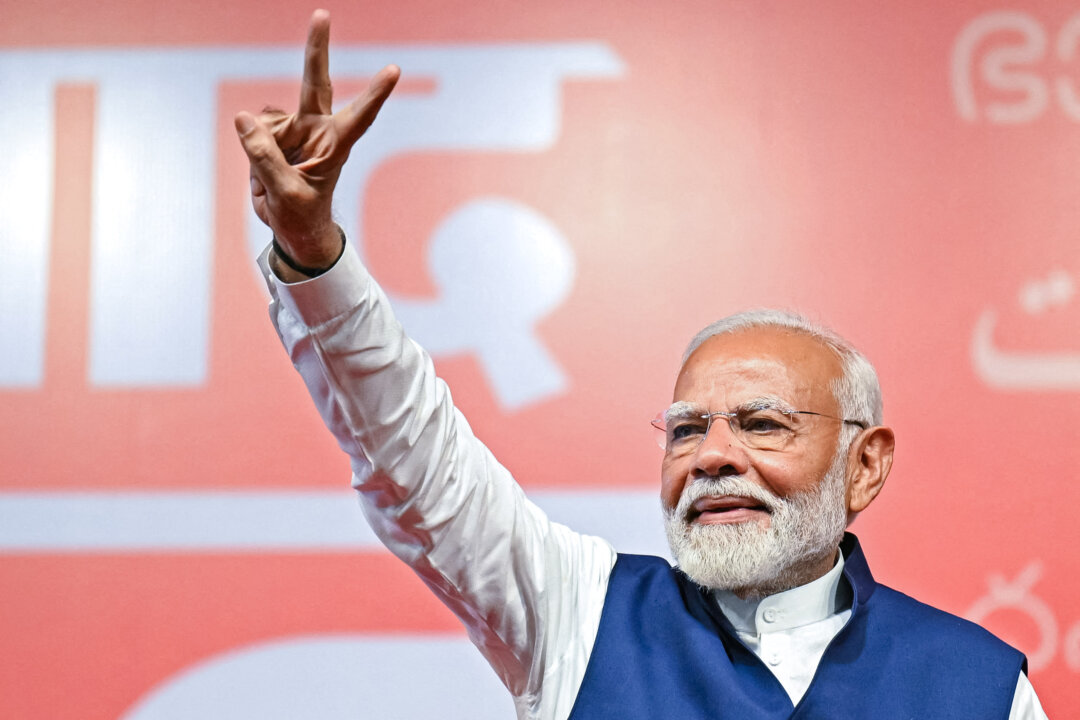Christopher Luxon has received an invitation to New Delhi from Narendra Modi, but seems to have made little progress toward the trade deal NZ covets.
New Zealand Prime Minister Christopher Luxon finally had his long-awaited meeting with his Indian counterpart, Narendra Modi, on the sidelines of the ASEAN summit in Laos.
He emerged with an invitation to New Delhi but seemingly no closer to the free trade agreement the Pacific nation has long sought.
While Modi made some opening remarks in front of the media contingent, they were told to leave before he had finished, and Luxon had a chance to reply.
Speaking in Hindi, Modi offered Luxon “a very warm welcome,” noting it was their first in-person meeting. The pair had previously spoken by phone in July.
“I’m very happy to have this opportunity of seeing you today [to] discuss some important issues,” a spokesperson translated.
Luxon’s National Party campaigned on securing an FTA with India in its first term despite major differences between the two countries over dairy products.
India is now the world’s fifth-largest economy and could be second only to China in terms of economic scale by 2050. However, New Zealand provides just 0.1 percent of India’s imports and is ranked 75th on the list of its trade partners.
The country has long protected its dairy industry, as seen in its decision to walk away from the Regional Comprehensive Economic Partnership (RCEP) free trade agreement and limit any meaningful access to its dairy products in its trade agreement with Australia.Before the meeting, Luxon expressed determination to deepen relations with India.
“There’ll be areas of disagreement and real challenge,” he said. “But first and foremost, I want the relationship in place, which is what we’ve been working hard at over the last 10 months.”
“Once we have a foundation, we can start to progress the more transactional conversations around trade and security.”
While he stood by his pre-election commitment to securing an FTA, Luxon acknowledged formal negotiations would need to start by 2025.
Labour’s foreign affairs spokesperson, David Parker, cast doubt on the pledge, saying, “They promised that they would land a free trade agreement, but of course, they said everything they thought they needed to say to get elected, even things that were not credible.”
“We value our friendship with New Zealand, bound together by a commitment to democracy, freedom, and the rule of law. Our talks covered sectors such as economic cooperation, tourism, education, and innovation,” he said.
Outside the meeting with Modi, Luxon also had an informal encounter with Japan’s new leader, Shigeru Ishiba, congratulating him on recently winning the leadership election for Japan’s ruling Liberal Democratic Party and thus becoming Prime Minister.
“We look forward to continuing to build the relationship between New Zealand and Japan. Well done. It must have been quite a busy few weeks for you,” he said.

